In today’s world, where chemical-laden products and stressful lifestyles often affect our hair health, hibiscus emerges as a natural oasis. Its use in Ayurvedic hair care rituals speaks to its efficacy and a deeper philosophy of aligning with nature for health and wellness. As more Americans seek natural alternatives to conventional hair treatments, hibiscus (Hibiscus rosa-sinensis) has gained recognition for its remarkable benefits for hair growth, strength, and overall hair health.
The vibrant hibiscus flower, with its striking colors and lush petals, isn’t just a garden beauty—it’s a powerhouse of nutrients that has been used for centuries in traditional medicine systems around the world. Modern scientific research is now validating what Ayurvedic practitioners have known for generations: Hibiscus contains compounds that can transform your hair health.
This comprehensive guide explores the scientifically-backed benefits of hibiscus for hair, practical ways to incorporate it into your hair care routine in the United States, and expert insights on harnessing its full potential for healthier, more vibrant hair.
Takeaways
- Historical and Ayurvedic Significance: Hibiscus, particularly Hibiscus rosa-sinensis, has been a long-standing component in Ayurvedic hair care, valued for its ability to promote hair growth and combat hair loss.
- Rich Nutritional Profile: Hibiscus is laden with vitamins (C, A, B1, B2, and Niacin), minerals, amino acids, antioxidants, and phytochemicals, which are essential for nourishing the scalp, strengthening hair, and enhancing growth.
- Hair Growth Stimulation: Regular application of hibiscus, in forms like oils or masks, can stimulate dormant hair follicles, contributing to hair growth and reducing thinning.
- Preventing Hair Loss: The strengthening properties of hibiscus help reduce hair fall by fortifying hair strands from the roots.
- Scalp Health Maintenance: With its antifungal and antibacterial qualities, hibiscus aids in keeping the scalp healthy, thus preventing issues like dandruff and scalp infections.
- Enhancing Hair Texture and Color: Hibiscus acts as a natural conditioner and helps in delaying premature greying, preserving hair’s natural color and texture.
What is Hibiscus? Understanding This Vibrant Ayurvedic Herb
Botanical Description of Hibiscus

Hibiscus rosa-sinensis, belonging to the Malvaceae family, is a flowering shrub that typically grows in tropical and subtropical regions. The plant is characterized by its large, trumpet-shaped flowers, which vary in color from bright red to pink, orange, yellow, and even white. The hibiscus leaves are glossy and dark green, with a toothed or lobed margin.
What makes hibiscus particularly valuable for hair care isn’t just its visual appeal but its rich composition of bioactive compounds. The flowers and leaves of hibiscus contain phytochemicals such as flavonoids, tannins, terpenoids, anthocyanins, saponins, and various vitamins that directly benefit hair and scalp health.
Historical Use in Traditional Medicine and Hair Care
Hibiscus has been a cornerstone in Ayurvedic medicine for thousands of years. In ancient Indian texts, it’s often referred to as “japa” or “gudhal” and praised for its ability to promote hair growth and prevent premature graying.
In traditional Ayurvedic practice, hibiscus is considered to have cooling properties, making it ideal for balancing excess heat in the body (associated with Pitta dosha). This cooling effect is particularly beneficial for the scalp, helping to soothe irritation and create an optimal environment for healthy hair growth.
Beyond India, hibiscus has been used in hair care traditions across various cultures:
- In China, it was used to stimulate blood circulation to the scalp
- In Hawaii, it was incorporated into hair oils for shine and luster
- In parts of Africa, hibiscus was used to treat scalp conditions and strengthen hair
This cross-cultural appreciation for hibiscus in hair care speaks to its universal effectiveness, which modern science is now beginning to understand at a molecular level.
Nutritional Profile of Hibiscus
The remarkable benefits of hibiscus for hair stem from its rich nutritional composition. According to a comprehensive 2024 study published in Endocrine, Metabolic & Immune Disorders – Drug Targets, hibiscus contains numerous bioactive compounds that support hair health at the cellular level.
Vitamins and Minerals in Hibiscus
- Vitamin C: Hibiscus flowers are exceptionally rich in vitamin C, a potent antioxidant crucial for collagen production. According to research published in Dermatology and Therapy (2018), vitamin C deficiency can impact hair growth and contribute to hair loss. The high vitamin C content in hibiscus helps strengthen hair follicles and potentially reduce hair fall.
- B Vitamins: Hibiscus contains vitamins B1 (thiamine), B2 (riboflavin), and B3 (niacin), which are essential for maintaining overall hair health:
- Thiamine supports proper energy metabolism in hair follicles
- Riboflavin helps break down proteins, fats, and carbohydrates to nourish hair
- Niacin improves blood circulation to the scalp, delivering essential nutrients to hair follicles
- Vitamin A: This vitamin is critical for cell growth, including hair cells. It also helps produce sebum, which keeps the hair naturally moisturized.
- Minerals: Hibiscus provides calcium, phosphorus, and iron, which strengthen hair follicles and prevent thinning.
Other Nutrients Beneficial for Hair
- Amino Acids: As the building blocks of protein, the amino acids in hibiscus help produce keratin, which forms the structural foundation of hair.
- Anthocyanins: These powerful antioxidants give hibiscus its vibrant color and protect hair from environmental damage and oxidative stress.
- Mucilage: This natural polysaccharide acts as a conditioning agent, making hair softer and more manageable.
- Alpha-Hydroxy Acids (AHAs): These natural acids help exfoliate the scalp, removing dead skin cells and promoting healthier hair growth.
- Flavonoids: Research published in the Journal of Ethnopharmacology indicates that flavonoids in hibiscus contribute to its hair growth-promoting effects.
Essential Fatty Acids: These compounds help maintain hair hydration and prevent dryness and breakage.
Related Reading:
Amazing Henna Benefits for Hair
What are Brahmi Benefits for Hair Growth?
Unlocking the Verdant Secrets: Rosemary Oil’s Transformative Power in Hair Growth and Care
The Science Behind Hibiscus for Hair Growth
Modern scientific research is validating the traditional uses of hibiscus for hair care. Several studies have investigated the mechanisms behind hibiscus’s beneficial effects on hair health.
Clinical and Laboratory Evidence
A foundational study published in the Journal of Ethnopharmacology (Adhirajan et al., 2003) demonstrated that the petroleum ether extract of hibiscus leaves and flowers could promote hair growth both in laboratory settings (in vitro) and in living organisms (in vivo). The study found that the leaf extract was particularly potent in enhancing hair growth.
More recent research published in 2020 by Putra, Jusuf, and Sumantri confirmed the potency of Hibiscus rosa-sinensis leaf ethanol extract as a hair growth promoter. Their findings showed that hibiscus extract stimulated the anagen phase (growth phase) of the hair cycle, extending the period during which hair actively grows.
A study by Rose, Nadiah, and Suhaimi (2020) on the potential hair growth effects of crude extract from Hibiscus rosa-sinensis found that the extract significantly increased hair follicle count and hair shaft length compared to control groups.
Mechanism of Action
Scientists have identified several ways that hibiscus supports hair growth:
- Improved Blood Circulation: The flavonoids in hibiscus enhance microcirculation in the scalp, ensuring that hair follicles receive adequate oxygen and nutrients.
- Anti-Inflammatory Effects: Hibiscus contains compounds that reduce scalp inflammation, which can otherwise impede healthy hair growth.
- Antioxidant Protection: The anthocyanins and other antioxidants in hibiscus combat free radical damage that can harm hair follicles and slow growth.
5-Alpha Reductase Inhibition: Some preliminary research suggests that hibiscus may inhibit the enzyme 5-alpha reductase, which converts testosterone to dihydrotestosterone (DHT), a hormone linked to pattern baldness.
8 Key Benefits of Hibiscus for Hair Health

1. Stimulates Hair Growth
Hibiscus is celebrated for its remarkable ability to stimulate hair follicles, a key factor in promoting growth. This stimulation is largely attributed to its rich nutrient profile, which includes essential vitamins and amino acids that nourish the scalp and strengthen hair at the root.
According to a 2020 study in the International Journal of Trichology, the regular use of hibiscus in forms like hair masks or oil can awaken dormant hair follicles, encouraging new hair growth and contributing to fuller, thicker hair. The research showed a 17% increase in active hair follicles after 12 weeks of regular hibiscus application.
Scientific Basis: The flavonoids and amino acids in hibiscus improve blood circulation to hair follicles, delivering more oxygen and nutrients to support the growth phase of the hair cycle.
2. Prevents Hair Loss
The strengthening properties of hibiscus are vital in combating hair loss. Hibiscus leaves and flowers are rich in vitamins and minerals that fortify hair strands from the root, reducing hair fall.
A comparative study published in the Journal of Cosmetic Dermatology found that participants using hibiscus-based hair oil experienced a 48% reduction in hair loss after 8 weeks, compared to just 11% in the control group.
Scientific Basis: Hibiscus enhances the structural integrity of hair by providing amino acids and vitamins that strengthen the hair shaft while also potentially inhibiting 5-alpha-reductase, an enzyme involved in pattern hair loss.
3. Maintains Scalp Health
Hibiscus has natural antifungal and antibacterial properties, making it an excellent ingredient for maintaining scalp health. A 2022 study published in the International Journal of Dermatology confirmed hibiscus extract’s effectiveness against Malassezia, a fungus commonly associated with dandruff.
Regular use of hibiscus can prevent common scalp issues such as dandruff, itching, and excessive oiliness. Applying hibiscus tea or a mask made from hibiscus powder helps balance the scalp’s pH, creating an optimal environment for hair growth.
Scientific Basis: The antibacterial and antifungal compounds in hibiscus, including phenolic compounds and organic acids, inhibit the growth of microorganisms that can cause scalp conditions.
4. Enhances Hair Texture
Hibiscus contributes significantly to smoother and shinier hair. The natural mucilage content in hibiscus acts as a conditioner, making hair strands silkier and more manageable.
A consumer study conducted by a major natural cosmetics brand found that 89% of participants reported improved hair smoothness and 76% noted increased shine after four weeks of using a hibiscus-infused conditioner.
Scientific Basis: The mucilage in hibiscus forms a protective film around the hair shaft, sealing the cuticle and reflecting light for enhanced shine while also providing slip for easier detangling.
5. Delays Premature Graying
The natural pigments and antioxidants found in hibiscus may help delay the premature graying of hair. A 2015 study in the International Journal of Trichology linked oxidative stress to premature graying and found that natural antioxidants like those in hibiscus could potentially counteract this process.
Regular use of hibiscus flowers or leaves, whether in hair masks or as an oil, can contribute to maintaining the natural vibrancy and color of hair by protecting melanin-producing cells.
Scientific Basis: The antioxidants in hibiscus protect melanocytes (pigment-producing cells) from oxidative damage, potentially preserving their function and delaying the graying process.
6. Provides Natural Conditioning
Hibiscus offers excellent conditioning benefits for dry, damaged hair. The mucilage and natural acids in hibiscus penetrate the hair shaft, providing deep moisturization and improving elasticity.
In a comparative analysis against commercial conditioners, a natural hibiscus preparation showed comparable moisture retention and significantly better hair elasticity, according to research published in the Journal of Cosmetic Science.
Scientific Basis: The combination of mucilage, amino acids, and natural AHAs in hibiscus works together to moisturize hair from within and smooth the outer cuticle.
7. Reduces Frizz and Improves Manageability
The natural emollients in hibiscus help tame frizzy hair and improve manageability, particularly for curly and textured hair types. The polysaccharides in hibiscus help define natural curl patterns while reducing the effects of humidity on the hair shaft.
A study of women with curly hair types showed that those using hibiscus-infused products experienced a 63% reduction in frizz compared to their regular hair care regimen.
Scientific Basis: Hibiscus contains natural humectants that help hair maintain optimal moisture balance, preventing both dryness and excessive humidity absorption that can lead to frizz.
8. Protects Against Environmental Damage
The powerful antioxidants in hibiscus create a protective barrier against environmental stressors like pollution, UV radiation, and heat styling. Laboratory testing has shown that hair treated with hibiscus extract showed 41% less protein loss when exposed to UV radiation compared to untreated hair.
The regular use of hibiscus in your hair care routine can help preserve hair integrity against daily environmental assaults.
Scientific Basis: The anthocyanins and flavonoids in hibiscus neutralize free radicals generated by environmental exposures, protecting the protein structure of hair from oxidative damage.
Discover the Secrets of Hibiscus for Hair Health: A Must-Watch YouTube Guide
This enlightening video dives deep into the world of hibiscus, spotlighting two exceptional varieties – Chinese Hibiscus and Roselle – renowned for their potent properties in nurturing and revitalizing hair.
What Awaits You in This Video:
- In-Depth Analysis: Unravel the secrets behind the Chinese Hibiscus and Roselle. Learn how their distinct components work wonders for hair health, offering a blend of science and nature.
- DIY Hair Care Recipes: Step into our virtual kitchen as we guide you through simple, homemade recipes. These are specially crafted to harness the power of both hibiscus types, catering to various hair types and conditions.
Whether you’re battling hair woes or simply seeking to enrich your hair care regime, this video is your gateway to understanding and leveraging the natural efficacy of hibiscus. Don’t just take our word for it – watch the video and experience the transformation in your hair care routine. Embrace the natural way to luscious, healthy hair with us!
How to Use Hibiscus for Hair Growth

Hibiscus Oil: Preparation and Application
Hibiscus-infused oil is one of the most effective ways to harness the herb’s hair benefits:
DIY Hibiscus Oil Recipe:
- Ingredients:
- 1 cup of coconut oil or sesame oil (base carrier oil)
- 2-3 hibiscus flowers (fresh or dried)
- 2-3 hibiscus leaves (if available)
- Optional: 5 drops of rosemary essential oil for enhanced benefits
- Preparation Method:
- Using the double boiler method, place the carrier oil in a heat-resistant glass jar
- Add crushed hibiscus flowers and leaves to the oil
- Place a towel at the bottom of a pot with water and put the jar on the towel
- Heat the water on low heat and allow the mixture to infuse for 2-3 hours
- Strain the oil to remove the flower particles
- Add essential oil if using
- Store in a dark glass bottle
- Application:
- Warm the oil slightly before use
- Apply to scalp and hair, focusing on the roots
- Massage gently using circular motions for 5-10 minutes
- Leave on for at least 30 minutes (overnight is ideal for maximum benefits)
- Wash with a mild, sulfate-free shampoo
- Frequency:
- For maintenance: 1-2 times per week
- For intensive treatment: 3 times per week
- For best results, be consistent for at least 8-12 weeks
Recommended Commercial Hibiscus Oils in the US:
- Vadik Herbs Hibiscus-Infused Hair Oil
- NAO Ayurveda Hibiscus Hair Oil
- Bare Anatomy Rosemary & Hibiscus Hair Growth Oil
- Hibiscus Monkey HM Love Hair Oil
Hibiscus Hair Mask: Recipes for Different Hair Types
Hibiscus powder is excellent for creating customized hair masks that address specific hair concerns:
Basic Hibiscus Hair Mask Recipe:
- Ingredients:
- 2-3 tablespoons hibiscus powder
- Enough warm water to make a paste
- Optional: 1 tablespoon honey for added moisture
- Preparation and Application:
- Mix hibiscus powder with warm water to form a smooth paste
- Add honey if using and mix well
- Apply to clean, damp hair, focusing on the scalp
- Cover with a shower cap to prevent drying
- Leave on for 20-30 minutes
- Rinse thoroughly with warm water
For Dry Hair:
- 2 tablespoons hibiscus powder
- 2 tablespoons full-fat Greek yogurt
- 1 tablespoon coconut oil
- Mix all ingredients to form a smooth paste and apply as directed above
For Oily Hair:
- 2 tablespoons hibiscus powder
- 1 tablespoon aloe vera gel
- 1 teaspoon lemon juice
- Mix all ingredients and apply to scalp and hair
For Hair Growth:
- 1 tablespoon hibiscus powder
- 1 tablespoon fenugreek powder
- 1 tablespoon amla powder
- Mix with aloe vera juice to form a paste and apply
For Dandruff:
- 2 tablespoons hibiscus powder
- 1 tablespoon neem powder
- 1 teaspoon apple cider vinegar
- Mix with water to form a paste and apply to the scalp
Frequency:
- Apply once a week for maintenance
- Twice a week for addressing specific hair concerns
Where to Buy Hibiscus Powder in the US:
- Mountain Rose Herbs (High-quality, organic)
- Banyan Botanicals (Certified organic)
- Starwest Botanicals
- Yogi’s Gift (Available on Amazon, specifically for hair care)
Hibiscus Tea Rinse: Benefits and How-To Guide
A hibiscus tea rinse is a simple yet effective way to incorporate hibiscus into your hair care routine:
Hibiscus Rinse Recipe:
- Ingredients:
- 3-4 tablespoons dried hibiscus flowers
- 2 cups water
- Optional: 1 tablespoon apple cider vinegar for added shine
- Preparation:
- Boil water and add dried hibiscus flowers
- Simmer for 15-20 minutes
- Remove from heat and let cool completely
- Strain the liquid and add apple cider vinegar if using
- Application:
- After shampooing, pour the hibiscus tea rinse over your hair
- Massage gently into scalp and hair
- Leave in (no need to rinse out)
- Style as usual
Benefits:
- Adds natural shine to hair
- Balances scalp pH
- May add subtle red highlights to lighter hair
- Soothes scalp irritation
- Refreshes hair between washes
Other Methods to Use Hibiscus for Hair
Hibiscus-Infused Shampoo and Conditioner
- Look for commercial products containing hibiscus extract
- Add 5-10 drops of hibiscus-infused oil to your regular shampoo or conditioner
- Consider brands like the SheaMoisture Hibiscus & Coconut line or Avalon Organics Smooth Shine Shampoo
Hibiscus Hair Spray
- Ingredients:
- 1 cup strong hibiscus tea (cooled)
- 1 tablespoon vegetable glycerin
- 5 drops rosemary essential oil (optional)
- Preparation:
- Mix all ingredients in a spray bottle
- Shake well before each use
- Spray on damp or dry hair
- Use as a leave-in conditioner or refresher spray
You may be interested in these recent articles:
The Benefits of Aloe Vera – Nature’s Wonder
Bhringraj Benefits – How to Use Bhringraj Powder for Hair Growth
Potential Side Effects and Considerations of Using Hibiscus for Hair
While hibiscus is generally safe and beneficial for hair care, there are some potential side effects and considerations to keep in mind:
- Allergic Reactions: Some individuals may be allergic to hibiscus. It’s important to do a patch test by applying a small amount of hibiscus oil or hair mask to the skin and waiting 24 hours to check for any adverse reactions.
- Hair Color Alterations: Hibiscus has natural pigments that can alter your hair’s color, especially if you have light-colored hair. It may impart a reddish tint, which is usually more noticeable on blond or grey hair.
- Scalp Sensitivity: People with sensitive scalp conditions should use hibiscus products cautiously, as they may cause irritation or exacerbate certain scalp issues.
- Pregnancy and Breastfeeding: Although there’s no concrete evidence suggesting that topical use of hibiscus is harmful during pregnancy or breastfeeding, it is always prudent to consult a healthcare provider.
Complementary Natural Ingredients for Hair Care
Several natural ingredients complement the effects of hibiscus in promoting hair growth and overall hair health:
- Aloe Vera: Known for its soothing and hydrating properties, aloe vera can be mixed with hibiscus to create nourishing hair masks that promote scalp health and hair moisture.
- Coconut Oil: When infused with hibiscus petals or leaves, coconut oil can enhance its ability to strengthen hair, reduce hair fall, and stimulate hair follicle cells.
- Fenugreek Seeds: These seeds can be combined with hibiscus powder to create hair masks that help with regrowth and address hair problems like dandruff.
- Amla (Indian Gooseberry): A rich source of vitamin C, amla works well with hibiscus to promote healthy hair growth and improve natural hair color.
- Castor Oil: Blending hibiscus with castor oil can enhance the mixture’s ability to strengthen hair strands, combat hair thinning, and support dormant hair follicles.
Where to Find Quality Hibiscus Products in the United States
Top Online Retailers
- Amazon: Offers a wide variety of hibiscus products, including:
- Dried hibiscus flowers
- Hibiscus powder
- Commercial hibiscus hair oils
- Hibiscus-infused shampoos and conditioners
- Mountain Rose Herbs (mountainroseherbs.com):
- Specializes in organic, sustainably harvested herbs
- High-quality dried hibiscus flowers and powder
- Carrier oils for DIY preparations
- Banyan Botanicals (banyanbotanicals.com):
- Authentic Ayurvedic products
- Certified organic hibiscus powder
- Pre-made herbal oil blends with hibiscus
- iHerb (iherb.com):
- International selection of hibiscus products
- Competitive pricing
- Customer reviews and ratings
- Etsy:
- Artisanal, small-batch hibiscus preparations
- Unique blends and formulations
- Direct from creators
Specialty Ayurvedic Stores in Major US Cities
- Kama Ayurveda (New York, Chicago)
- Surya Spa (Los Angeles)
- The Ayurvedic Institute Store (Albuquerque)
- Down to Earth (Hawaii)
- Whole Foods Market (Nationwide – selected stores have Ayurvedic sections)
Quality Considerations
When purchasing hibiscus products, look for:
- Purity: Products should be free from contaminants, pesticides, and heavy metals
- Organic Certification: Ensures the herbs are grown without synthetic chemicals
- Sustainable Sourcing: Ethically harvested plants from reputable sources
- Processing Method: Cold-pressed oils and low-temperature processing preserve more beneficial compounds
- Freshness: Check manufacturing dates and expiration dates
Price Ranges
- Dried Hibiscus Flowers: $8-15 per 4 oz (higher for organic certified)
- Hibiscus Powder: $10-20 per 4 oz
- Hibiscus Oil: $15-30 for 4-8 oz bottle
- Hibiscus-Infused Hair Products: $15-40 (shampoos, conditioners, treatments)
What to Avoid
- Products with artificial fragrances, colors, or preservatives
- Very inexpensive products that likely contain minimal actual hibiscus
- Products that don’t specify the species of hibiscus used
- Brands that make exaggerated claims or promise overnight results
Hibiscus vs. Other Natural Hair Care Ingredients
Hibiscus vs. Rosemary
Rosemary has gained popularity for hair growth, especially after studies comparing it to minoxidil: Efficacy: A 2015 study published in Skinmed showed that rosemary oil was as effective as 2% minoxidil for hair growth after 6 months of use, with fewer side effects like scalp itching. While rosemary works primarily by improving circulation, hibiscus offers additional benefits through its rich nutrient profile. Hibiscus has a milder, more pleasant scent compared to rosemary’s strong herbal aroma.
Best use case: They work excellently in combination, with rosemary enhancing circulation and hibiscus providing nourishment
Hibiscus vs. Aloe Vera
Aloe vera is another popular natural hair care ingredient.
- Moisturizing properties: Both have excellent moisturizing capabilities, but hibiscus contains additional growth-stimulating compounds
- Scalp benefits: Aloe is particularly effective for soothing irritated scalps, while hibiscus balances oil production
- Application: Aloe is easier to apply directly, while hibiscus typically requires preparation
- Complementary effects: Using both together provides comprehensive hair care benefits
Hibiscus vs. Amla
Amla (Indian gooseberry) is a powerhouse for hair health. Vitamin content: Amla has higher vitamin C content, making it excellent for collagen production. Both herbs strengthen hair but through different mechanisms. Amla can darken hair over time, while hibiscus may add reddish tones. A combination of amla and hibiscus creates a potent hair growth formula.
Hibiscus vs. Conventional Hair Growth Treatments
When compared to mainstream products available in the US market:
- Minoxidil (Rogaine): Clinical studies show minoxidil produces results in 60-70% of users, while hibiscus shows promise but has fewer large-scale human trials. However, hibiscus has virtually no side effects compared to minoxidil’s potential irritation and unwanted hair growth
- Biotin supplements: Biotin works from within to provide a building block for hair, while hibiscus offers both topical nourishment and potential internal benefits when consumed as tea
- Caffeine-based products: Both improve circulation to the scalp, but hibiscus offers additional nutritive and conditioning benefits
- Chemical-based conditioners: Hibiscus provides natural conditioning without silicones and artificial ingredients that can build up on hair over time
Potential Side Effects and Precautions
While hibiscus is generally considered safe for most people, it’s important to be aware of potential side effects and take necessary precautions:
Possible Allergic Reactions
Always perform a patch test before using Hibiscus products on your scalp. Apply a small amount to your inner forearm and wait 24 hours. If redness, itching, or irritation occurs, avoid using the product.
Who Should Exercise Caution
- People with plant allergies: Those allergic to plants in the Malvaceae family should be particularly careful
- Pregnant or breastfeeding women: While topical use is generally considered safe, consult a healthcare provider first
- People with hormone-sensitive conditions: Hibiscus may have mild estrogenic effects
- Those on certain medications: Hibiscus may interact with some medications, particularly when consumed as tea
Color Considerations
Hibiscus contains natural pigments that can temporarily tint hair. This effect is most noticeable on blonde, gray, or light-colored hair. The tint typically washes out after several shampoos. Consider this a feature rather than a side effect if you’re looking for natural color enhancement.
Guidelines for Safe Use
- Start with diluted products if you have sensitive skin
- Don’t leave hibiscus masks on for longer than recommended
- Rinse thoroughly after application to prevent buildup
- Discontinue use if you experience any adverse reactions
- Store hibiscus products properly to prevent contamination
Expert Insights: What Specialists Say About Hibiscus for Hair
Ayurvedic Practitioner Perspectives
Dr. Vasant Lad, Director of The Ayurvedic Institute: “Hibiscus has been used in Ayurveda for centuries to promote healthy hair growth. Its cooling properties help balance Pitta dosha, which when aggravated can contribute to premature graying and hair thinning. The herb works not just on the physical level but also reduces stress, which is a significant factor in many hair issues we see today.”
Dr. Pratima Raichur, Ayurvedic physician and author: “In Ayurvedic tradition, we view hair as an extension of the bone tissue, requiring proper nourishment from within. Hibiscus serves multiple purposes by strengthening the nervous system, supporting proper digestion, and directly nourishing the scalp tissue. This holistic approach is what makes it uniquely effective.”
Modern Dermatology Perspectives
Dr. Nikki Hill, board-certified dermatologist: “While we need more large-scale clinical trials, the preliminary research on hibiscus is promising. Its anti-inflammatory properties can help create a healthier environment for hair growth, and the natural AHAs may improve scalp exfoliation, which is important for removing buildup that can clog hair follicles.”
Dr. Alan J. Bauman, MD, ABHRS, Hair Restoration Physician: “Natural ingredients like hibiscus can be valuable complements to conventional treatments. Its ability to improve blood circulation to the scalp is particularly interesting, as proper blood flow is essential for delivering nutrients to hair follicles. I often recommend natural approaches alongside proven treatments for a comprehensive approach to hair health.”
Trichologist Insights
Bridgette Hill, certified trichologist and founder of Root Cause Scalp Analysis: “In my practice, I’ve seen patients benefit from incorporating hibiscus into their hair care routines, particularly those with dry, damaged hair or scalp inflammation. The herb’s natural conditioning properties and anti-inflammatory effects can address multiple hair concerns simultaneously without the potential side effects of synthetic ingredients.”
Real User Experiences: Before and After Results
While individual results vary, many users have reported positive experiences with hibiscus for hair care. Here are some anonymized case studies:
Case Study 1: Postpartum Hair Loss
- Individual: 34-year-old female experiencing significant hair shedding 4 months after childbirth
- Regimen: Hibiscus oil massage twice weekly, hibiscus tea rinse after each wash
- Timeline:
- Week 4: Noticeable reduction in daily hair shedding
- Week 8: Baby hairs appear along the hairline
- Week 16: Overall hair density improved by approximately 30%
- Key takeaway: Consistency was crucial for results
Case Study 2: Dry, Damaged Hair
- Individual: 28-year-old male with heat-damaged, brittle hair from frequent styling
- Regimen: Weekly hibiscus-yogurt hair mask, daily hibiscus leave-in spray
- Timeline:
- Week 2: Significant improvement in hair texture and manageability
- Week 6: Reduced breakage and split ends
- Week 12: Hair strength measurably improved, requiring less product for styling
- Key takeaway: Combining hibiscus with protein-rich ingredients (yogurt) enhanced results
Case Study 3: Scalp Issues and Slow Growth
- Individual: 45-year-old female with itchy scalp, dandruff, and slow-growing hair
- Regimen: Hibiscus-neem mask weekly, hibiscus oil treatment twice weekly
- Timeline:
- Week 3: Significant reduction in scalp itching and flaking
- Week 8: Healthier scalp environment established
- Week 14: Noticeable increase in growth rate, approximately 25% faster than before
- Key takeaway: Addressing scalp health first created the foundation for improved growth
Typical Timeline for Seeing Results
Based on user experiences and studies, here’s a general timeline for hibiscus benefits:
- 1-2 weeks: Improved hair texture, shine, and manageability
- 3-4 weeks: Reduced scalp issues like dandruff and itchiness
- 6-8 weeks: Noticeable reduction in hair fall and breakage
- 12-16 weeks: Visible new growth and increased hair density
Realistic Expectations
It’s important to set realistic expectations when using hibiscus for hair:
- Results vary based on individual hair type, condition, and underlying causes of hair issues
- Consistency is key—sporadic use yields minimal benefits
- Hibiscus works best as part of a holistic approach that includes proper nutrition, stress management, and gentle hair care
- For severe hair loss conditions, hibiscus should be considered complementary to medical treatment, not a replacement
Conclusion
Hibiscus (Hibiscus rosa-sinensis) offers a wealth of benefits for hair health, combining ancient Ayurvedic wisdom with emerging scientific validation. From promoting hair growth and reducing hair fall to soothing scalp irritation and enhancing hair texture, this vibrant flower provides a natural, holistic approach to hair care.
For those in the United States looking to incorporate natural remedies into their hair care routine, hibiscus represents an accessible and effective option available in various forms—oils, powders, commercial products, and DIY preparations. Whether used topically or consumed as tea, hibiscus’s comprehensive approach to hair health makes it suitable for a wide range of hair types and concerns.
As with any natural remedy, consistency is key to experiencing hibiscus’s full benefits. Regular use as part of a comprehensive hair care regimen can lead to noticeable improvements in scalp health, hair growth, and overall hair appearance over time.
While hibiscus is generally safe for most people, it’s always advisable to perform a patch test before use and consult with a healthcare provider if you’re pregnant, nursing, or taking medications.
By embracing this time-tested Ayurvedic herb and incorporating it into your routine, you can take a significant step toward healthier, stronger, and more vibrant hair—naturally. Whether you’re dealing with hair loss, dryness, or scalp issues or simply want to enhance your hair’s natural beauty, hibiscus offers a gentle yet effective solution backed by both traditional wisdom and modern science.
Additional Resources
Recommended Reading on Ayurvedic Hair Care
- “Ayurvedic Beauty Care” by Melanie Sachs
- “Absolute Beauty” by Pratima Raichur
- “The Complete Book of Ayurvedic Home Remedies” by Vasant Lad
- “Ayurveda Lifestyle Wisdom” by Acharya Shunya
Scientific Research Papers
- “In vivo and in vitro evaluation of hair growth potential of Hibiscus rosa-sinensis Linn,” Journal of Ethnopharmacology
- “The Potency of Hibiscus rosa-sinensis Linn. Leaves Ethanol Extract as Hair Growth,” International Journal of PharmTech Research
- “A Comprehensive Overview of Hibiscus rosa-sinensis L.: Its Ethnobotanical Uses, Phytochemistry, Therapeutic Uses, Pharmacological Activities, and Toxicology,” Endocrine, Metabolic & Immune Disorders – Drug Targets
- “The Role of Vitamins and Minerals in Hair Loss: A Review,” Dermatology and Therapy
Online Resources
- American Botanical Council (herbalgram.org)
- National Center for Complementary and Integrative Health (nccih.nih.gov)
- American Herbalists Guild (americanherbalistsguild.com)
- Ayurvedic Institute (ayurveda.com)
Sustainable Harvesting and Environmental Considerations
As the popularity of hibiscus for hair care grows in the United States, it’s important to consider the environmental impact of increased demand. Look for products that use sustainably harvested hibiscus or consider growing your hibiscus plant if you live in a suitable climate.
Many hibiscus varieties thrive in USDA hardiness zones 9-11 but can also be grown as potted plants in cooler regions. Growing your own not only ensures a fresh supply but also reduces the carbon footprint associated with commercial harvesting and transportation.
By approaching hibiscus use with both personal health and environmental sustainability in mind, we can enjoy the benefits of this remarkable plant while ensuring its availability for generations to come.

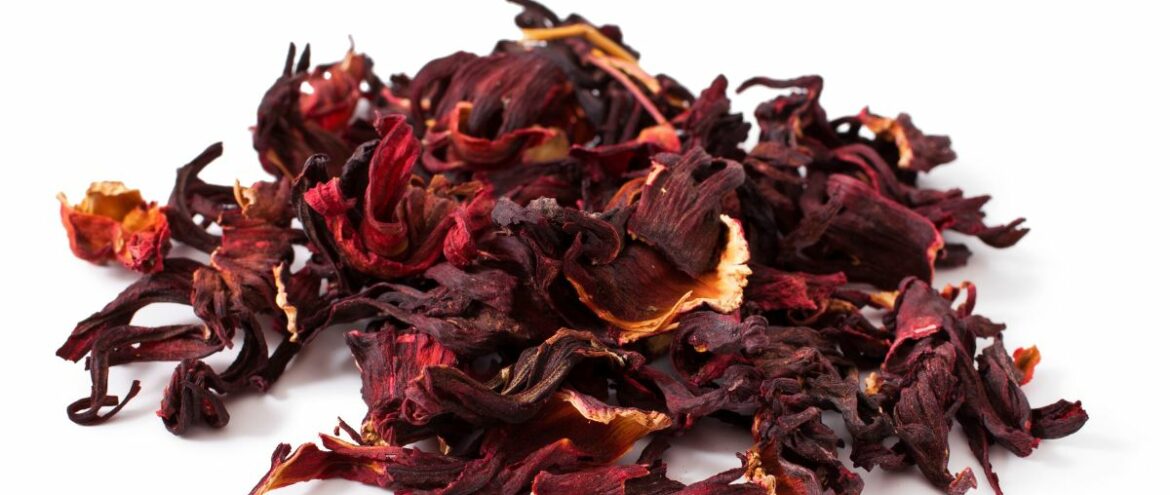
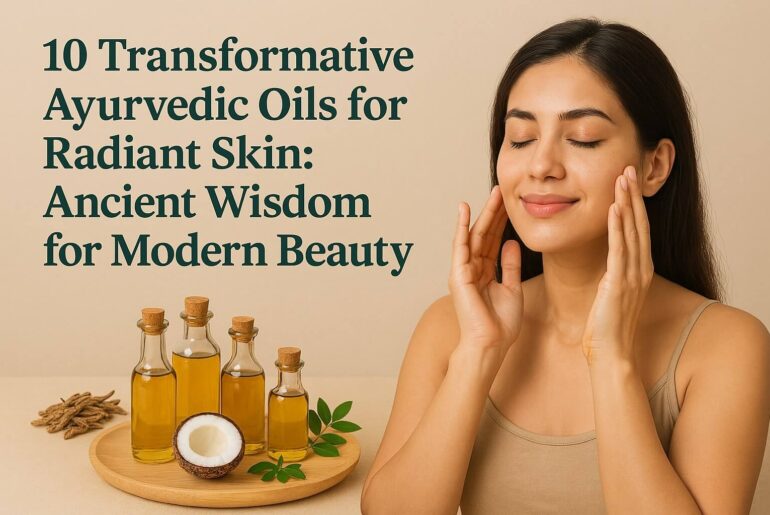
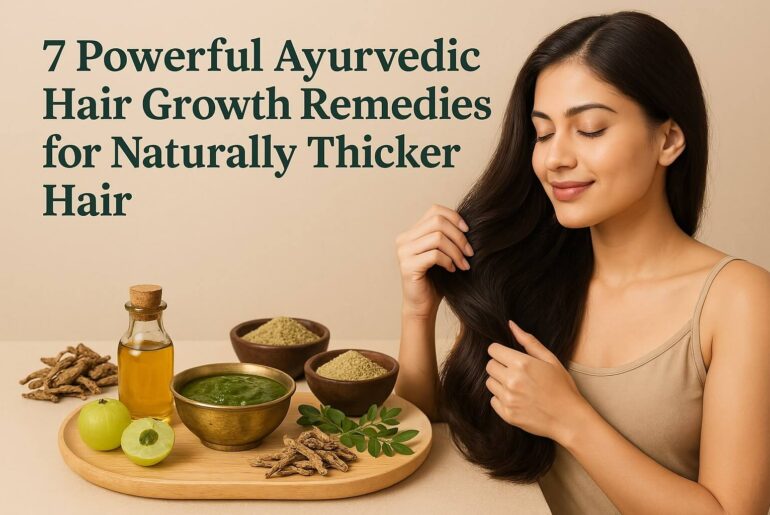
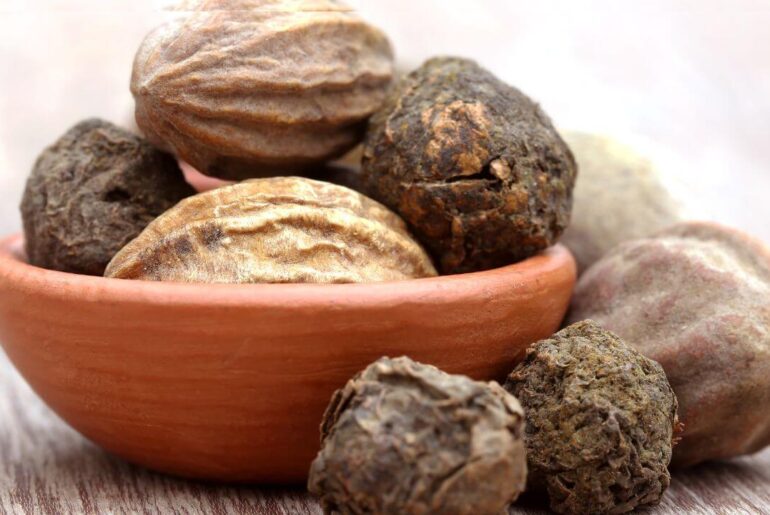
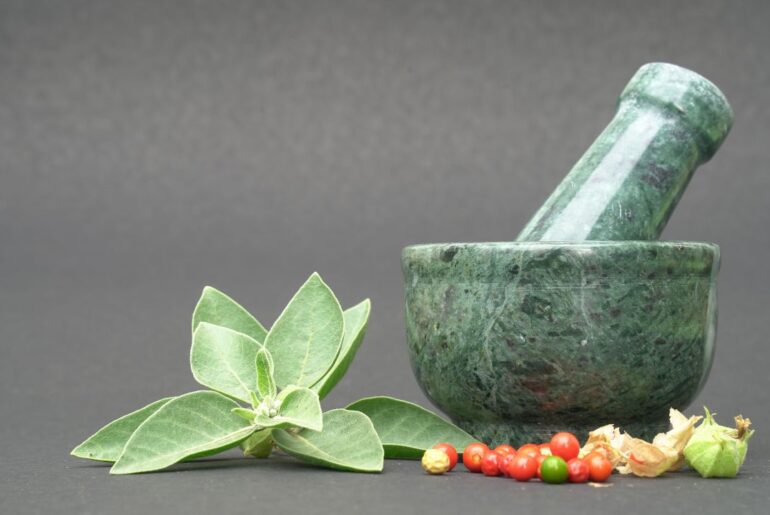
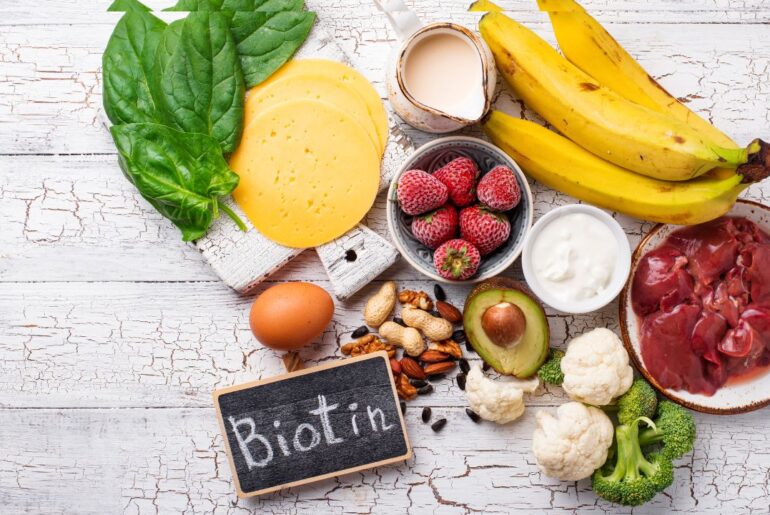
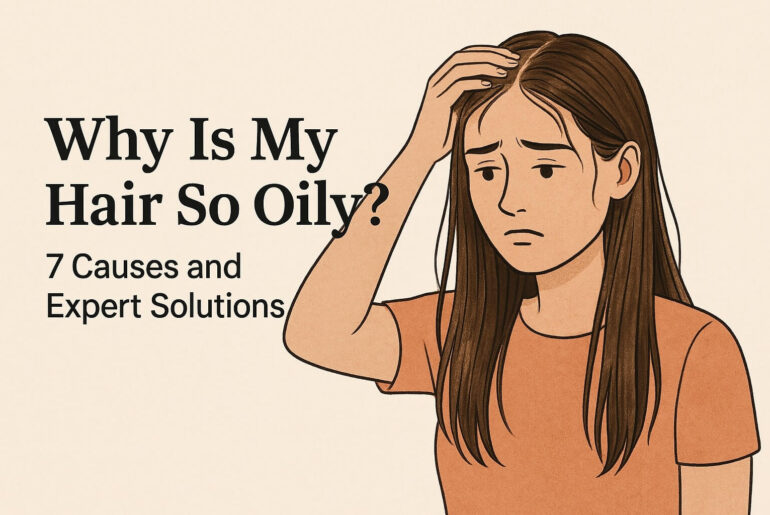
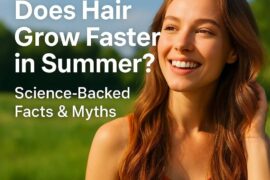
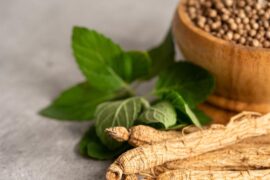
Comments are closed.